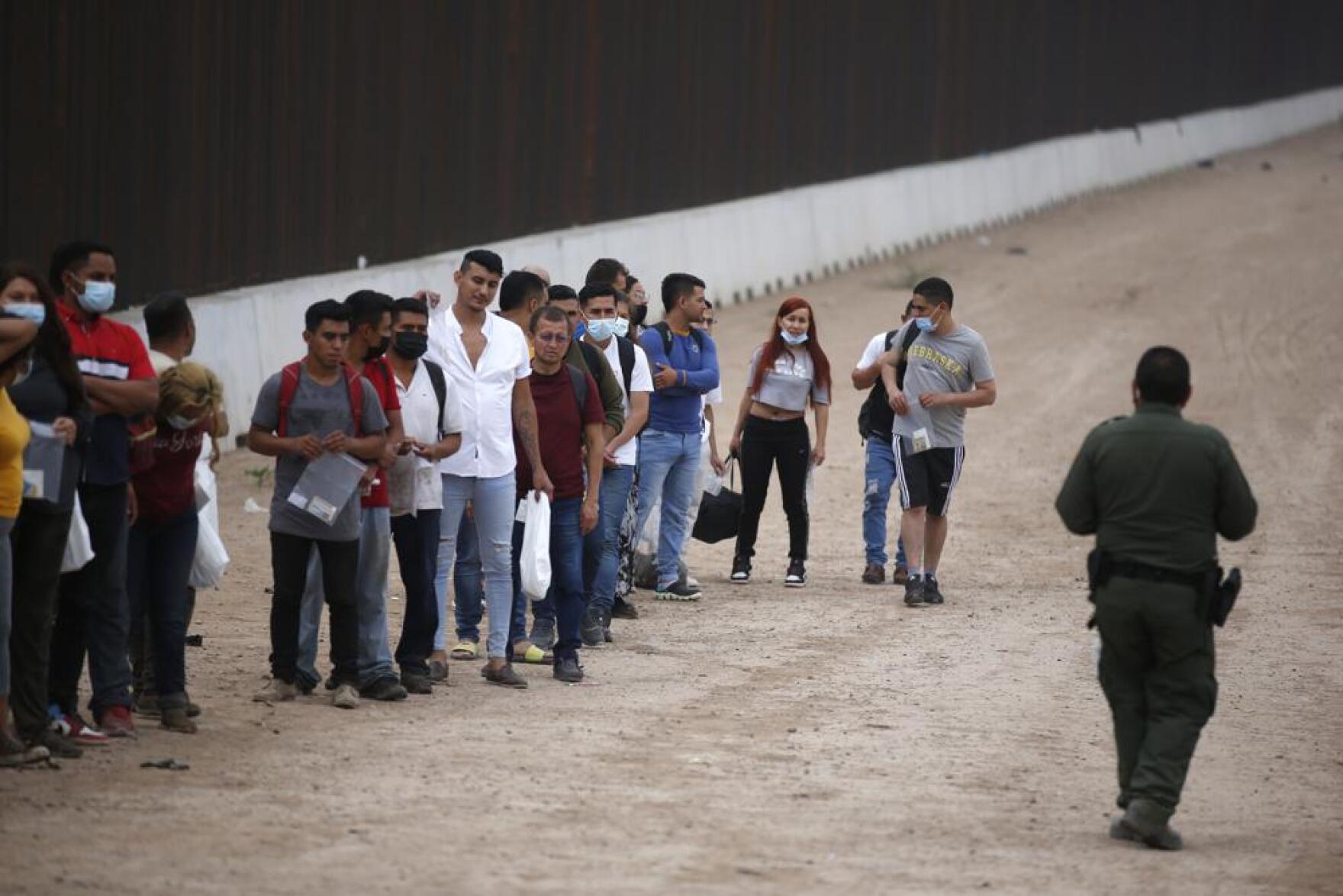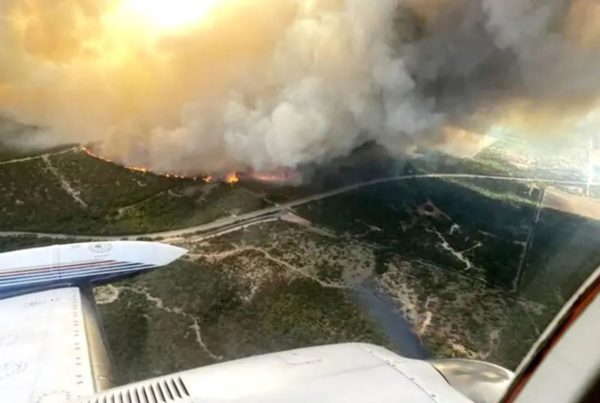This story originally published May 20 and was updated May 23. Listen to a Texas Standard segment with the Texas Newsroom’s Julián Aguilar in the audio player above.
A federal district judge has temporarily blocked the Biden administration from lifting a public health policy that allows federal border officials to immediately expel migrants at the United States southern border.
In a ruling issued Friday afternoon, Louisiana-based U.S. District Judge Robert Summerhays said that the Biden administration’s attempt to end the Title 42 policy was in error because it did not comply with the Administrative Procedure Act. The program was set to be lifted Monday, May 23. The APA governs the way regulations are made and how much input the public has.
“Given the impact of the Termination Order on the Plaintiff States and their showing that the [Centers for Disease Control and Prevention] did not comply with the APA, the Court concludes that the public interest would be served by a preliminary injunction preventing the termination of the CDC’s Title 42 Orders,” Summerhays wrote.
The judge’s ruling comes after 24 states sued to stop the administration from ending the policy. Aside from the provisions of the APA, the states also argued they would suffer irreparable harm should the policy end because of the influx of migrants they would allegedly receive. Summerhays agreed the states showed that proof.
“The Court concludes that the Plaintiff States have met this burden. The record reflects that — based on the government’s own predictions — that the Termination Order will result in an increase in daily border crossings and that this increase could be as large as a three-fold increase to 18,000 daily border crossings,” he wrote. “The record also includes evidence supporting the Plaintiff States’ position that such an increase in border crossings will increase their costs for healthcare reimbursements and education services. These costs are not recoverable.”
Since the Trump administration put Title 42 into effect in March of 2020, nearly 2 million migrants — including asylum seekers who have the legal right to seek protection in the United States — have been turned away at the southern border under the policy, according to the Migration Policy Institute. Despite pressure from some Democrats and immigrant rights groups, the Biden Administration kept it in place for more than a year before trying to wind the program down. The policy was amended in March to exclude unaccompanied minors.
The Associated Press has outlined the discrepancies in which populations are allowed to come to the U.S. and seek asylum: Those from Mexico and Central America are largely expelled to Mexico under Title 42, but other nationalities are permitted into the U.S. based on a variety of factors including relations between the U.S. government and their home countries.
For migrants who have been amassing in border towns expecting Title 42 to end, many may find themselves on the streets if shelters do not have enough capacity.
» RELATED: ‘We have to be ready’: El Paso prepares for end of pandemic border restrictions, influx of migrants
Summerhays’ decision comes as the Texas-Mexico border continues to see near-record crossings of undocumented immigrants.
Since the beginning of the current fiscal year in October, U.S. Border Patrol agents have encountered more than 287,000 migrants in the Rio Grande Valley sector and more than 236,000 in the Del Rio sector, according to Customs and Border Protection statistics. In the El Paso sector, which also includes New Mexico, agents have encountered more than 143,000.
Texas Republicans and some border Democrats, including U.S. Reps. Henry Cuellar, D-Laredo, and Vicente Gonzalez, D-McAllen, said lifting the policy would have led to an even greater number of unauthorized crossings. But immigrants’ rights groups and immigration attorneys have argued that rather than a true health policy, Title 42 has instead been used as a tool to deny migrants a chance to have their day in court without due process.
The scheduled end to Title 42 prompted Gov. Greg Abbott to impose more border restrictions as part of his controversial Operation Lone Star border-security operation. They included the short-lived Department of Public Safety inspections of commercial vehicles at border crossings that stalled trade and cost the state hundreds of millions in lost trade revenue.
On Friday, Abbott also activated the Joint Border Security Operations Center, which he described in a statement as a coordinated response to “secure the border in preparation for President Biden’s reckless decision to end Title 42 expulsions.”
















